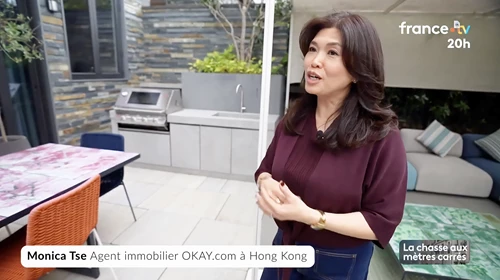
23 January 2017 - You’ll be hearing the phrase “Gong Hei Fat Choy” a lot this this season which means congratulations and be prosperous in the future! Chinese New Year in Hong Kong includes ceremonies and traditions that are not only interesting but intertwined with a deep ancestral history. Starting on 28 January this year, this holiday is about celebrating a year of hard work, relaxing with the family and wishing for a prosperous new year.
We’ve listed 10 Facts you need to know about Chinese New Year in 2017:
1. Focused, Motivated & Cocky: Year of the Rooster!

2017 is the Year of the Rooster as per the Chinese 12-year animal zodiac. People born in the Year of the Rooster are characterized as honest, energetic, intelligent, flexible and confident. The strengths of the Rooster include health, self-assurance and athleticism. Its weaknesses include sensitivity, moodiness and stress.
2. Richness of Red

Red is commonly used throughout the New Year's celebrations as it symbolizes a bright and happy future. It is also believed that this color will scare away evil spirits and bad fortune. You will see red lanterns hanging in the streets, red couplets pasted on doors, and lots of red clothing. Red Couplets are the most common and important traditional decorations for Chinese New Year. Couplets are composed of New Year wishes such as health, luck, work, and safety. These couplets are usually pasted on any doors inside and outside of the house.
3. Get Your Clean On

Homes are completely cleaned before the beginning of the New Year to symbolize a fresh start ahead. People also make sure to put away all cleaning equipment before New Year's Eve as it's believed that good fortune may be swept away if cleaning is done on New Year's Day.
4. Lai See, Please

The most commonly exchanged gift during Chinese New Year are red envelopes or “Lai See.” Technically all unmarried children get Lai See from parents, grandparents, uncles, aunts and so forth. The amount of money given depends on the relationship with the person, but amounts with the number “4” are avoided as the Chinese pronunciation of this word resembles that of the character of the word “death.”
5. Money Talks

Giving out money that is old, torn and wrinkled is a sign of disrespect. People all over Hong Kong will spend weeks preceding Chinese New Year withdrawing crisp notes from the bank. Look out for those long lines at the bank!
6. Born Again Vegan! No Meat on Day One

Traditionally, people refrain from eating meat on the first day, as it is believed to bring good luck for the year. Instead they eat vegetarian dishes most of which include lotus seed to signify fertility, and dried bean curd to represent wealth and happiness. Fresh tofu is typically not included as white is considered bad luck and representative of death and misfortune. Most shops are closed on the first day of the new year, so people need to get everything ready (food, gifts, etc.) the day before!
7. Day Two, it's Family Time!

Married women will visit and pay respect to their parents on this day. The Chinese will also pray to their ancestors as well as the gods. Families will watch the fireworks over Victoria Harbor together and will marvel over the displays of many festive patterns such as the number 8, golden ingots and many hues of red.
8. Blessings on Day Three

Hong Kongers will avoid visiting their relatives on this day because the 3rd day is known as“chec hao”(赤口), which means it’s easy to get into arguments and will visit a temple instead. A popular one is the Che Kung Temple in Tai Wai area of Sha Tin which honors Che Kung, a military commander of the Southern Song dynasty. People will turn fan-bladed wheels of fortune and beat the drum to wish for good luck in the coming year.
The temple was built around 300 years ago, in a desperate attempt to stop an epidemic that was spreading across the Sha Tin area. Legend has it that the epidemic began to subside the day the temple was completed. Due to this tradition, many people believe the temple is blessed and will continue to visit, and pay respect in hopes of a prosperous new year ahead.
9. Make it Sweet, with a Chinese Candy Box

The traditional Chinese candy box also known as the tray of togetherness can be found on the tables of almost every house you visit during Chinese New Year. Usually round or Octagonal in shape, it has 6 or 8 compartments which contain a variety of dried fruit, nuts and sweets. The most common components are candied dried lotus root and seeds, candied dried winter melon, roasted watermelon seeds, dried coconut, all of which have symbolic meaning from wising to increased fertility to stronger family ties.
10. Chinese New Year Taboos

- Brooms are to be avoided as sweeping symbolizes the sweeping away of your wealth. Throwing away rubbish or doing laundry have the same connotation
- Don't wash your hair on the first day as it will wash away good luck
- Sharp objects such as knives and scissors are to be avoided as any accident is thought to lead to inauspicious events and depletion of wealth
- Money should not be lent to anyone on New Year’s Day as it means you will be unlucky all year round
- Avoid buying new shoes during Chinese New Year. The word “shoes” sounds like a sigh which is unfavorable and seen as bad luck



